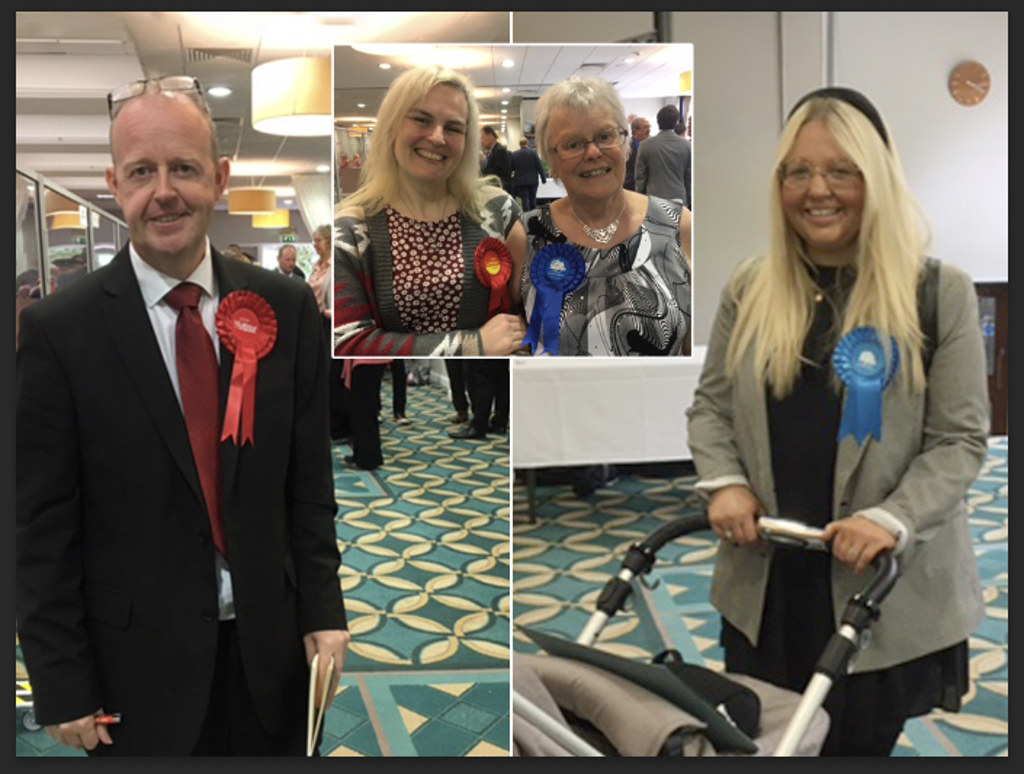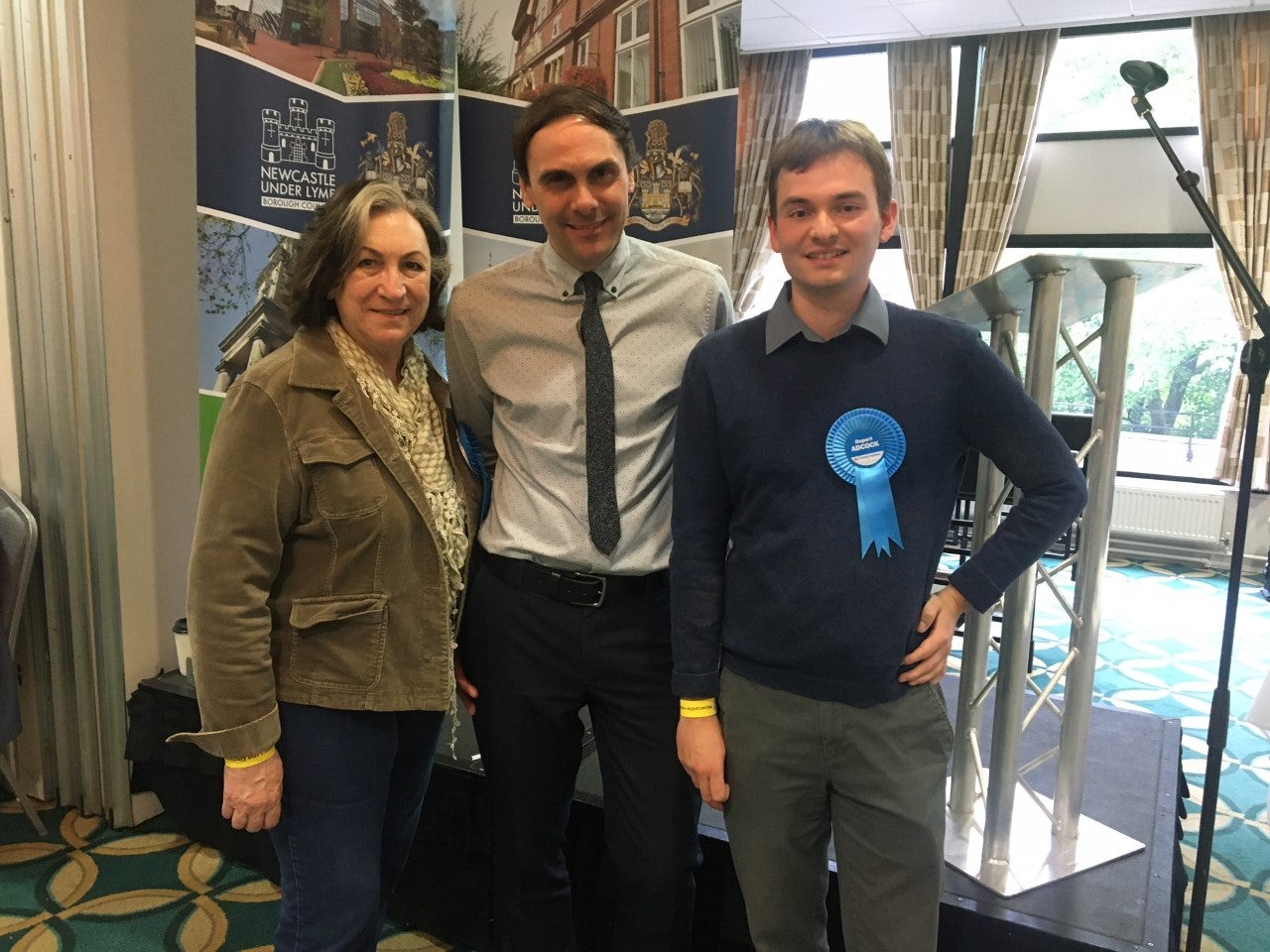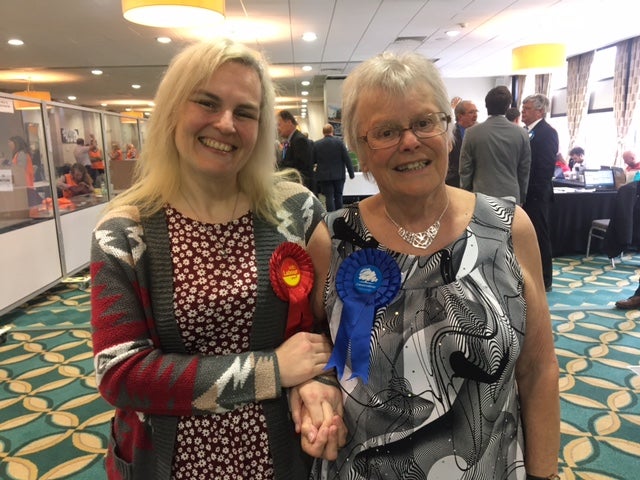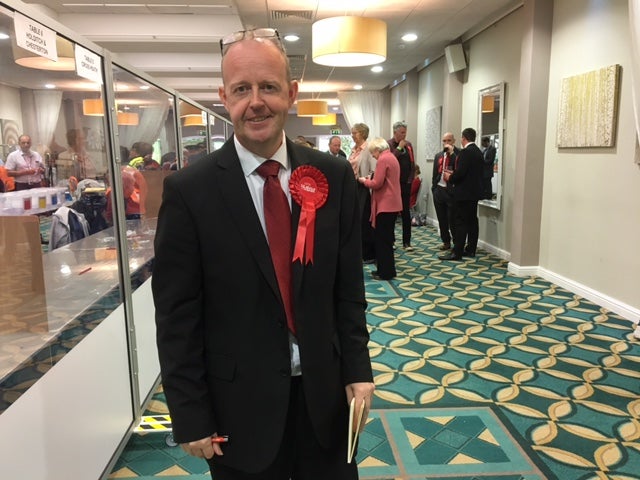
The barman at the stately Keele Hall looked on bored. He’d been told he wasn’t allowed to serve alcohol all day. “I don’t know why,” he shrugged. “Some people here look like they need a drink.”
Thus went the Newcastle-under-Lyme Borough council election count – a poll that was both as tight as you like and of a political importance that will now resonate all the way to Westminster.
“What happens in this room today is a barometer for the next two years,” said Mike Stubbs, leader of the Labour group, shortly before counting proceeded at 9.30am on Friday. “This could tell us how the next general election goes.”
Seven hours later – after tears, lots of tea and one seat decided by drawing lots – he had a verdict he probably didn’t want. The Tories had won it.
“We’re disappointed,” said Mr Stubbs. “This was our number one target in the West Midlands and we invested money and time into trying to win it. Our volunteers have worked so hard. But this suggests people are still to be convinced by the message we are putting out, and that is something we now need to put right over the next 24 months.”

Early headlines from this year’s local elections may have been dominated by Barnet and Wandsworth after Sir Kier Starmer’s party seized them from Tory control. But it is places like the rather less lionised Newcastle-under-Lyme where the country’s political future may have been truly foretold.
This Brexit-backing town – once best known for coal, cotton and brick manufacturing – is historically one of Labour’s strongest red wall redoubts. The party held the parliamentary constituency here for more than a century from 1918. Since the council was formed in 1974, it has been overwhelmingly red-led.
Then, in 2017, the Tories seized leadership of the authority and have kept it since. Two years later they took the constituency too during Boris Johnson’s election landslide. Aaron Bell became the first blue MP here since 1880.
Which meant that the results of this small district authority – population 128,000 – were widely seen as an indicator of if Sir Keir Starmer is winning hearts and minds in his party’s old Northern and Midlands heartlands. He may not be, it seems.
The fact the Tories not only maintained their previous majority of one but increased it to three suggests Labour continues to struggle in its former strong holds. Conversely, it subverts the national narrative that Partygate would swing these elections away from Mr Johnson.
“We’re delighted,” said Conservative leader Simon Tagg, all smiles. “We’ve spent the last four years working hard for people and I think that’s been recognised.”

With all 44 of the authority’s seats up for grabs, the Tories won 25 compared to Labour’s 19. No Lib Dems or independents were elected here.
Several wards required recounts. One was so tight it was decided, in the Tories favour, by the drawing of lots after a dead heat – only the third time that’s happened in UK electoral history.
“Like winning on penalties,” said Mr Tagg. “It’s not how you’d want to do it but we’ll take it. We’ll definitely take it.”
The beneficiary was conservative Lilian Barker who pipped Labour’s Claire Radford. Aged 80, Barker was a first-time councillor. Why throw herself into Town Hall politics as an octogenarian?
“Why not?” she demanded. “I’m fit, I’m active. I love my community and I’ve worked hard for it for years.”
A point across at a Labour candidate in his fifties. “I’ve known him since he was at school,” she said. “He’s a lovely man.”
Another first-time victor was Amy Bryan here with almost certainly the count’s youngest witness: her eight-week-old baby. “She’s been everywhere on the campaign trail with me so it’s only right she came today,” the new councillor noted.
National issues undoubtedly made an impact here.
Partygate (inevitably) came up on the doorstep but, paradoxically, not always to the Tories disadvantage, Mr Stubbs believes. “It’s damaged us all,” he said. “You work hard as a councillor for years and then some burke breaks his own rules in Westminster and people tar you with that brush. I would say 30 per cent of people who comment on it have said they won’t vote Tory but 70 say they won’t vote for any big party. It’s hard to take.”
The cost-of-living crisis, too, was raised repeatedly, as was HS2, which runs through the borough but doesn’t stop.

But local concerns may have been just as important in influencing the vote.
There appears to be a widely felt feeling that the Tories have made a competent fist of running the council. A town centre redevelopment has been largely welcomed, as has the refurbishment of one of the area’s flagship sports centres in Kidsgrove. While the authority has been unable to solve the now infamous issue of a notoriously noxious landfill site in Silverdale, much of the anger for that is directed at the Environment Agency which residents say has repeatedly failed to act.
“People have seen this is a council working hard for them,” said Mr Bell, who spent all day at the count. “The last few week’s we have had Keir Starmer, John Ashworth come here and they’ve now been sent packing with their tail between their legs because people know we are here putting in the hard work.”
It was a view echoed by Graham Hutton, the deputy chair of the Newcastle Conservative Association.
“Keir Starmer came here last year for the county council elections and we won those and he’s come here this year and we’ve won again,” he said. “Maybe he’s our good luck charm. I might invite him myself before the next election.”







